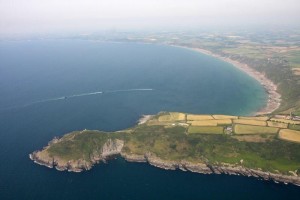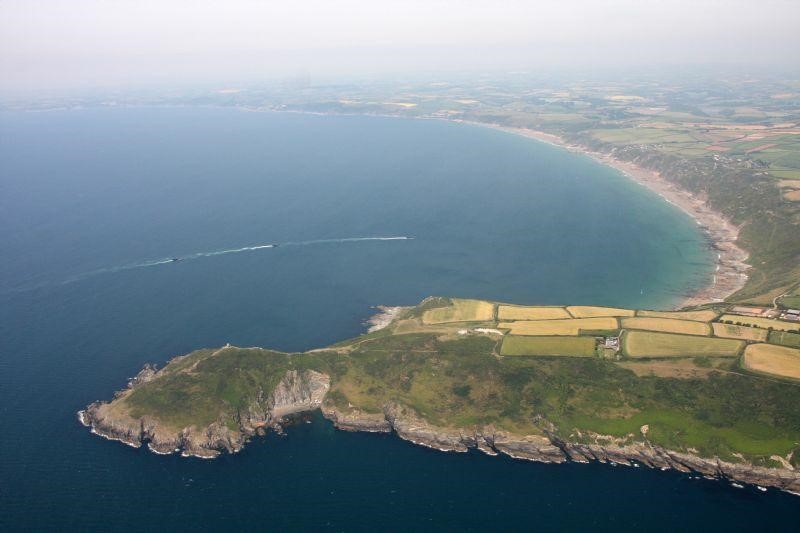 Looe Valley Trail Final Report Jan 2018
Looe Valley Trail Final Report Jan 2018
Looe Valley Trail Feasibility Study Jan 2018
Follow the Links for Looe Valley Trail Reports
Media Release
08 January 2018
A new network of cycle trails in South East Cornwall could add between £2 – £3 million per year to the local tourist economy, according to a new report.
The Looe Valley Trails project, led by Looe Development Trust, has tested the feasibility and cost of creating new trails linking Lanhydrock, Liskeard, Looe and Plymouth via the Cremyll Ferry. Their report, now  available through the Looe Development Trust website, recommends the creation of 70 km of new trails at an estimated construction cost of £8.3 million, of which around half is offroad with the rest using quiet lanes.  The preferred route uses mainly existing offroad tracks along the Glynn Valley and West Looe Valley, with a new section up the East Looe connecting Looe and Liskeard following the route of the Looe Valley Branch Line . The preferred route from Looe to Plymouth uses quiet lanes along the coast including the spectacular Military Road, and approaches the Cremyll Ferry through Mount Edgecumbe Country Park. Reaching agreements with private landowners along the route will be an important next step for the project along with detailed engineering design work to get greater certainty about the project costs.
An economic impact study based on data from Visit Cornwall and evidence from other similar trails around the country suggests that the trails could be visited by as many as 500,000 people per year, generating £10 million per year of spending in local accommodation, cafes and other tourist activities. Between £2 – £3 million of this could be new spending that would otherwise not come to the area, representing a growth of 4% in the annual market for tourism. As well as extra spending from new visitors, there could be several new businesses created including cycle hire and cafes at key locations along the route.
Justin Spreckley, Chairman of Looe Development Trust, said “Almost half of local businesses are in the agriculture, retail or hotel and catering sectors. Anything we can do to boost their business, particularly out of season, would make a big difference to local prosperity. As a local Development Trust, we have been delighted to lead this study and will now be championing the Trails for further funding to make sure we get to see the benefits. We hope to set up a new Friends of the Trail organisation so that local people can get involved in helping to support the project and make the most of the opportunities it offers.â€
The feasibility study included extensive consultation with the tourist industry, who were strongly supportive of the project. Malcolm Bell, Chief Executive of Visit Cornwall, said “South East Cornwall currently attracts fewer staying or overnight visitors than most other parts of Cornwall, so the potential for growth through the right investments is clear. Cornwall is perceived as one of the top three destinations in the UK for cycle tourism and there’s a big market available if these Trails can be delivered.â€
The feasibility study was funded by Cornwall Council, the LEADER EU funding programme, Cornwall and Isles of Scilly LEP, Liskeard and Looe Town Councils, Liskeard Town Forum and the Cornish Mining World Heritage Site. Deborah Boden from the World Heritage Site said “The Liskeard & Caradon Railway in the East Looe Valley was constructed as the essential transport link between the Caradon Hill World Heritage Site area and the port of Looe, from where thousands of tons of copper ore were shipped to South Wales for smelting. The presence of the railway, and the canal to which it was linked at Moorswater, also facilitated the growth of a major trade in Bodmin Moor granite, which was exported across the world. The Looe Valley Trail provides a great opportunity to tell the story of how these places and their people were shaped by industrialisation, and will engage local communities in celebrating their history and identity as industrial pioneers.â€
Sustrans, the national charity making it easier for people to walk and cycle, were involved in the study as part of the engineering and design investigations funded by Cornwall Council. Simon Pratt, Head of Network Development at Sustrans, said “These Trails fill a missing link in the National Cycle Network, connecting with Plymouth and Dartmoor to the east and Bodmin and the Camel Trail to the west. The Looe to Plymouth section in particular has been on our radar for many years and I hope that the time has come when it can now be delivered. As well as the tourism benefits, these trail routes are well connected to the railway network at Bodmin Parkway and Liskeard and offer more sustainable travel options for commuters and local people.â€
The report has been welcomed by Cornwall Council and the Cornwall and Isles of Scilly LEP. Sandra Rothwell, Chief Executive of the Cornwall and Isles of Scilly LEP, which co-funded the feasibility study, said: “This study shows the potential for the Looe Valley Trail to make a significant contribution to rural businesses in South East Cornwall and could complement recent LEP investment in Bodmin to strengthen the local cycle network and the visitor economy. We look forward to seeing further plans as they are brought forward.â€
Edwina Hannaford, Cornwall Council cabinet member for Neighbourhoods and a member of the Trail Steering Group said: “These proposed cycle networks are a fantastic opportunity for south-east Cornwall and support our work to build strong local communities, each with their own identity and offer for visitors. Improved cycle networks would provide significant benefits for Cornwall’s people, environment and economy by helping to connect communities, improve access to services, reduce traffic congestion and pollution, and encourage people to lead healthier lifestyles.â€
ENDS
For further information contact:
Dr Sue Brownlow
Project Manager, Looe Valley Trail
Looe Development Trust
07713 810967 or [email protected]
